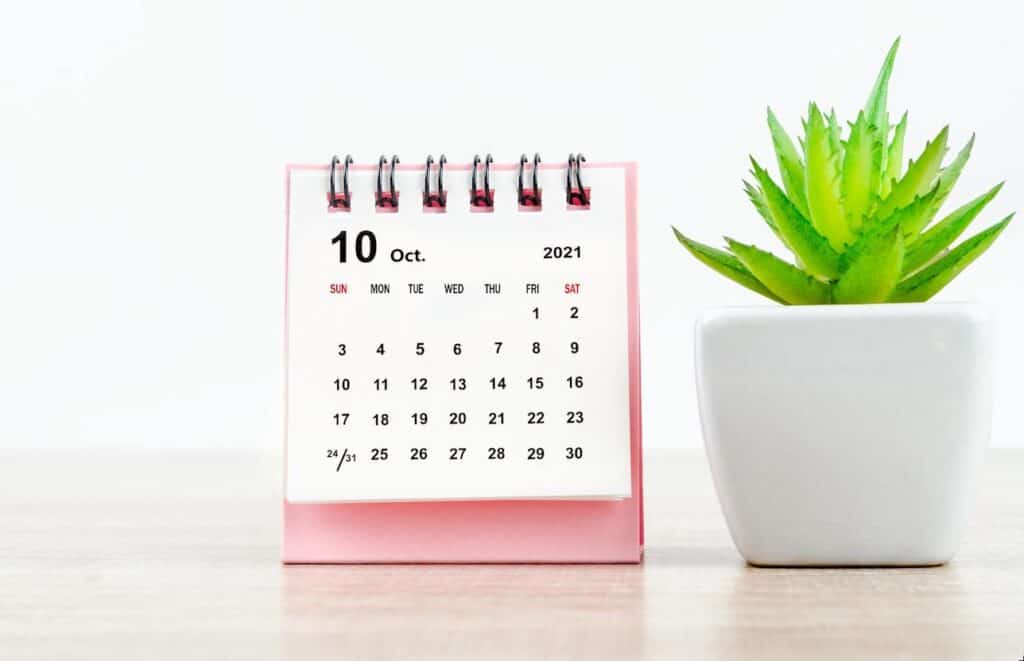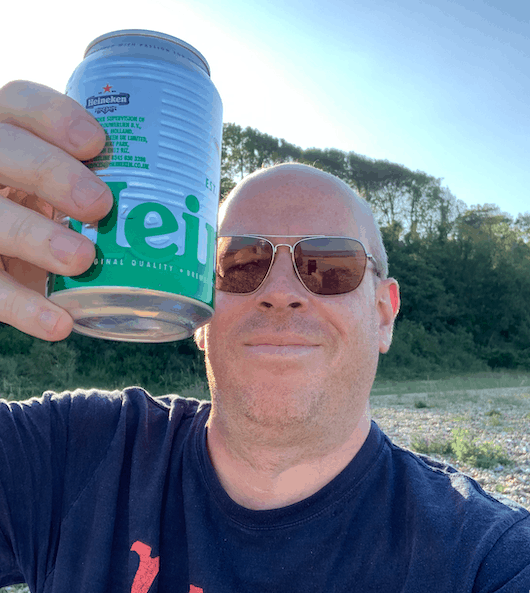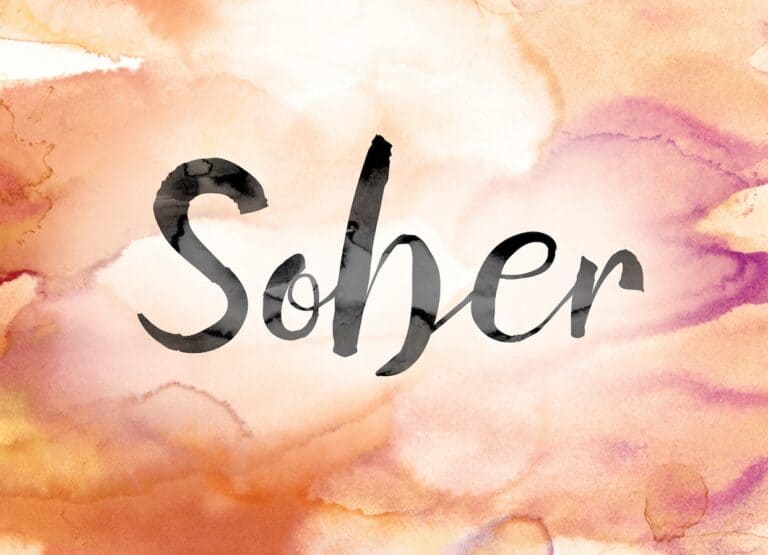Planning to achieve a “dry month” away from alcohol?
These tips for Dry January or Sober October will help you to actually enjoy it. Surely that’s preferable to spending a grumpy month feeling like you’re missing out?
Before we start, let’s get into the basics.
What Are Dry January and Sober October?
Dry January, Sober October, and other similar initiative, have become increasingly popular in recent years. They involve abstaining from alcohol for a month, and are popular in many countries, including the USA and UK.
In some cases, there’s a charity element. For example, in the UK, for example, many people take part in Sober October in aid of Macmillan Cancer Support.
In the case of Dry January, it emerged as a natural thing to want to do after the excesses of Christmas. But many people get involved for good causes, and the event is managed by Alcohol Change, a UK charity.
Away from these one-off monthly campaigns, drinking alcohol is waning in popularity more broadly. More and more people are “sober curious” nowadays, with many finding that they’re happier if they drink less, or abstain altogether.
If you’re reading this, I shall assume you’re thinking about giving Dry January or Sober October a go. If you were one of the (many) people who speaks out against these initiatives, you probably wouldn’t be here.

Before I move on to my tips for Dry January and Sober October, I want to tell you a little about me. I was once vocal in my distaste for events like this.
“Meh, why would anybody do Dry January? It’s the most depressing month of the year. You need alcohol to get through it!”
Yep, that was me. It’s not any more.
Why Listen To Me?
I’ve not had an alcoholic drink now for over 500 days – and it started out with an alcohol free month.
I didn’t need to quit drinking (although it probably would have reached that stage eventually, had I kept going). I simply did the month, started to notice some real benefits, and decided to continue.
I don’t see myself as “in recovery,” nor believe I was an “alcoholic” (in the “stashing vodka in the filing cabinet and living a life of chaos” type way).
But I had worked my way into the 24% of people drinking more than “safe limits,” and I was certainly somebody who used alcohol to punctuate my life.
Barbecue? Beer! Food ready? Wine! Friend over? Pub! Start of holiday? Cocktail! End of holiday? Last cocktail! Unhappy? Wine! Happy? Wine!

I always was, and I remain, somebody who’s fiercely protective of everybody’s right to “live their best life” in the way they see fit. I’ve had some amazing times “on alcohol.” But I’ve also had some eye-openly incredible times since I cut it out of my life.
I’m telling you this because I want you to know that I’m not some born-again temperance freak. I know as well as anybody that getting smashed is fun. But I also know there is a lot more to life.
Tips for Dry January / Sober October
I’m not going to go into all the reasons why you might want to give an alcohol free month a go. I will assume you already have your own reasons if you’ve read this far.
Instead, I shall get straight into my tips for enjoying, and not just enduring a month off booze.
1. Don’t See It As “Missing Out”
One surefire way to turn Dry January into a long, dull slog is to be fixated on the thought that you’re “depriving yourself” of something.
Counting down the days until it’s all over – when you can pour yourself a massive G&T – is NOT the right mindset.
There are so many better ways to frame it:
- “I’m doing something good for my body and mind.”
- “I’m trying something new.”
- “I’m taking some time out to finally start that project / focus on work / take that course.”
- “I’m curious to know if I feel different when I don’t drink.”
I could go on, but hopefully you see my point.
It’s a month. Just. One. Month.
In fact, if the thought of a month is really that intimidating, it’s probably a really clear sign that some time away from alcohol is something you could do with.
Over the years, I’ve seen SO many people, myself included, try something like Dry January and give up part way through. That’s way more likely to happen if you’re framing it as something you have to endure.
It doesn’t need to be that way.
2. Think Of Some Things To Achieve
If you do spend a lot of your leisure time drinking, you will find yourself with some time on your hands during Sober October / Dry January.
Many people who quit drinking complain of being bored at first, and not knowing what to do with their evenings. It was no different for me at the start.
But there’s so much you can do with that time. Why not:
- Sit and complete a video game.
- Actually read some of the books that have been piling up.
- Finally take that course you liked the look of.
- Resolve to complete the DIY project you keep putting off.
- Start a fitness class.
- Start ANY new hobby that you like the look of.
Almost all of us complain about not having the time to do things we’d like to. Many people yearn for time off work so they can finally do the things they’ve been putting off.
Abstaining from drinking may well free up some time – so use it! It doesn’t matter if you want to spend it on something truly virtuous, or on eating ice cream in your pants and watching Netflix. Think of what you fancy doing, and do it!
3. Stock Up On Alcohol Free Alternatives
I remember one very short-lived attempt I had at quitting drinking, back somewhere around 2011 or 2012. I purchased various different alcohol free beers.
I tried a couple, decided they were disgusting (they were), and that quit attempt was over within a matter of hours.
If that’s the kind of memory you have of alcohol free drinks, I’m pleased to tell you that things have changed – a lot.
Even mainstream alcohol free beers like Heineken Zero are pretty decent now. And if you step beyond that into craft beers, there’s an incredible selection. Some are truly stand-out, and it would take you forever to try them all.

And here’s the really amazing news: Drinking alcohol free beer actually gives you a boost of the feel-good chemical, dopamine. So if you like to celebrate the end of the day with a “relaxing” cold beer, you may well find that an alcohol free version gives you exactly the same feeling.
A 2018 study into the neuroscience around the feeling of “reward” showed “no differences to brain activity between 0% ABV non-alcoholic beer and 4.8% standard beer.”
And it’s not just beer. Companies both large and small have responded to the “sober curious” movement by launching some amazing products. The only thing that’s eluded me so far is a drinkable alcohol free red wine – but I shall continue my search.
Here are some products to try:
Three Spirit: These alcohol free spirits are really interesting, using botanical ingredients to provide a “buzz” without booze – and they actually work! Check out my review here.
Juke’s Cordialities: For anybody who likes drinking wine as an accompaniment to food, these are a very interesting alternative. Review here.
Lucky Saint Lager: One of my personal favourite alcohol free beers. Review here.
Punchy Drinks: A range of inventive and very “grown up” soft drinks. Review here.

I also have a big guide to the best alcohol free drinks.
4. Make Plans With Friends and Family
So many people have social lives that revolve around alcohol. I certainly did.
This can mean that when you’re doing something like Sober October or Dry January, you feel inclined to go into “hermit mode.”
It’s OK to do that – and it certainly won’t do you any harm for a month. However, I’d really encourage you to make some “sober plans” with family and friends.
Why not do something you wouldn’t have ordinarily done (or been able to do) if you were all pounding beers, such as a driving experience or climbing something? Or revert to childhood and go to a theme-park? Or gather together for a night of snacks and console games?
My intention with this one of my Sober October tips is to give you the opportunity to realise that sober socialising can be really fun.
My two young sons don’t need booze to enjoy their “play dates,” and nor did you before alcohol became an all-occasions social lubricant.
I’ve enjoyed socialising just as much since I quit booze – perhaps more. It’s not the same – but that’s a good thing!
Bonus points here if you try something where you’d usually use alcohol to lower your inhibitions. Something I often think back to is a time at school when some of the older kids formed a band. A concert was arranged one evening, and while everybody started out a bit shy, we were all soon “dancing like nobody was watching.”
I never though I’d see the day when I routinely did Twitch DJ streams, with my “dad dancing” moves on open display. But I do now – and quite frankly I don’t give a s&*t.
There’s power in learning to be uninhibited without the need of a crutch – I recommend it.
5. Educate Yourself About Drinking
This tip for Sober October / Dry January is admittedly a little more serious than some of the others, but it’s worth using a period of abstinence to learn a little more about the substance you’re having a break from.
Alcohol is such a big part of life that we don’t tend to readily acknowledge the fact that it IS a drug. It’s also a drug that companies spend billions marketing. This plays a big part in why we associate it so strongly with relaxing, celebrating and having fun.
The one book I always recommend above all others is Alcohol Explained, by William Porter. It’s a great read and a major eye-opener. I also have a list of other great quit lit books here.

6. Think About a Diet
Given that doing Sober October or Dry January is a healthy choice, it may be worth considering adding to it by going on a diet for the month. You will get to feel extra virtuous!
Booze is filled with empty calories, so if you drink with any regularity, you’ll likely find that not drinking is, by itself, enough to see you effortlessly shedding a few pounds.
As such, it’s as good a time as any to think about weight loss, if you feel that’s something you’d like to do.
I lost over 30 lbs in the months after I quit drinking. People telling you you’ve lost a bunch of weight never gets boring.
I have a detailed comparison of Weight Watchers and Slimming World here, if it’s of interest.
7. Find a Partner in Crime
This tip is a simple one: Doing a month off alcohol can be easier and more fun if you have somebody doing it with you.
So have a think about who might enjoy sharing the experience with you. (And note, here, that I’m saying “the experience.” Again, it’s about mindset – this is an experience, not a gruelling hardship!)
8. Treat Yourself
Alcohol is expensive.
Even if you only drink a half decent bottle of wine per week, you’re spending about $50 / £40 per month. And, let’s be honest, most regular drinkers spend WAY more than that. You can spend that on a single round of drinks in London or New York!
With that in mind, why not think about what you’re saving, and spend at least some of it on a treat for yourself? You deserve it!
9. Assess If You Have “A Problem”
Not drinking alcohol for a single month shouldn’t be that difficult.
I don’t want to get all “parental,” but if it IS really difficult, you should probably take note of that.

Something that many advocates of sobriety shy away from saying is that in many ways, alcohol does “work.” It can take the edge off anxiety, make a dull evening less dull, and provide you with a way to switch off from the day and get some (usually rather poor quality) sleep.
But there are healthier ways of achieving all of those things.
If you’re at (or reaching) a stage where you’re dependent on alcohol, it might be time to address the problem. These things can and do get worse.
10. Consider Going Longer
As I said near the start, my own extended period of not drinking began with a month off. It wasn’t Sober October, in my case, but I started off with a distinct goal of 30 days off.
I never planned nor expected to not be drinking over a year later. It just happened.
Most people who do Sober October or Dry January feel better for doing it, and are often underwhelmed by alcohol when they go back to it. There’s data for this, showing that people who take a month off tend to continue to drink less afterwards.
I felt major benefits after the first month – and that was a huge factor in me keeping it going. And I am pleased to say that the positives keep on coming. If I felt like an improved person after one month, I felt like a completely different person after three.
So if you’re enjoying it, why not keep it up? Why rush back to it just because you can? There could be even more good stuff around the corner.
If just one person is encouraged and helped by my tips for Dry January / Sober October, writing this article will have been worthwhile. I know that I sound evangelical about quitting booze, but that’s only because it’s been more transformative for me than I ever would have believed.
I used to love drinking. I just love NOT drinking more now. Maybe you will too.
Important
If you suspect you may be physically dependent on alcohol, you must consult your doctor before stopping abruptly.
Further Reading
There’s quite a lot on this site about my journey to living alcohol free. Check out:
- 7 Lessons on Life Without Alcohol
- 15 Benefits of Stopping Drinking
- Things That Will Help You Stop Drinking






